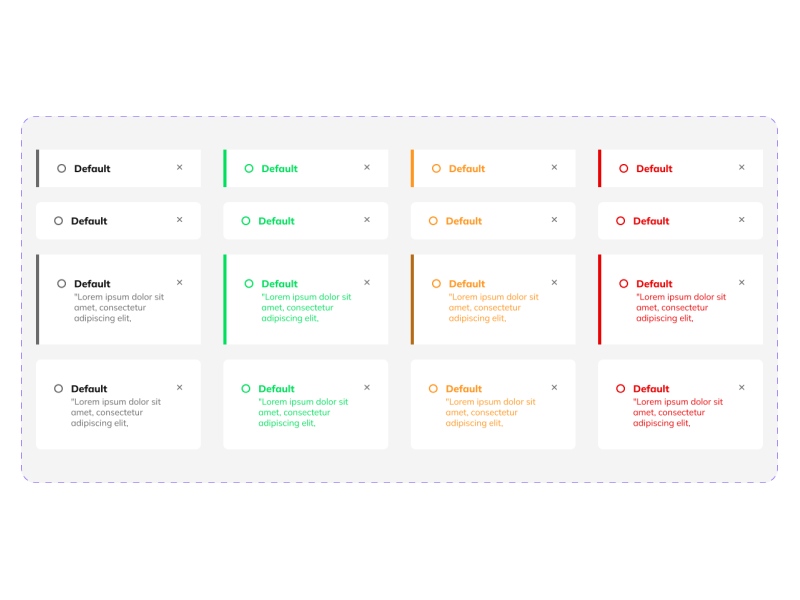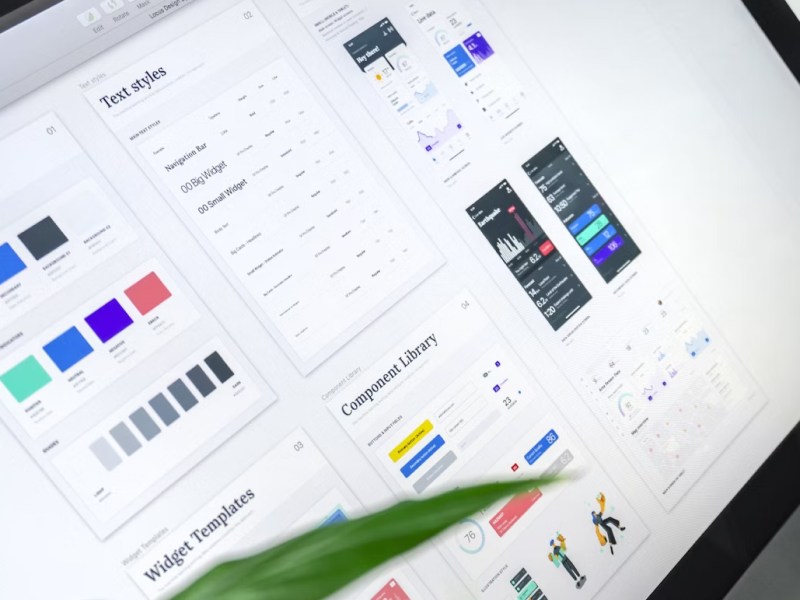As old as time goes, color has meaning. Whether it was the color of nature, of the sun, or the leaves when it comes to more recent years, color still plays a big role in our society and even in the UI UX design sphere.
In our day-to-day lives when we come across something new the first thing we notice is the color. We see the visual aspect and wonder about its shape, and purpose which can sometimes be given out or led by its color. Think about road signs, big shiny red buttons, or bright yellow signs– they all carry a meaning whether or not we notice. Red will always stand out in a web or app design and when we see yellow we might need to wait or prepare for the next action to take place.
Believe it or not, 93% of us are influenced by these UI UX design visual factors when deciding to purchase any product. As users, we are so accustomed to seeing them that we often underestimate their power and influence over how we perceive things. But good UI UX designers will never fall into this trap because color is one of the first aspects they must consider during the design process. To make their job more efficient, let’s further discuss why is color important in data visualization for UX UI designers.
Countless psychology studies attest that each color invokes a distinct feeling inside the viewers. It is essential to remember that the symbolism and meaning of colors can vary based on which cultures we choose to analyze. Therefore, when we are designing a website or creating an app design, we have to research our target audience. Sometimes, even factors such as age, occupation, and gender can vastly influence how a user will interpret a certain color scheme. However, there are a few general traits that can be attributed to each color that we should be aware of:
This bold color instantly captures the attention of the viewer. It is the brightest and hottest hue in the color wheel. While it is great for making an impact, we have to be careful to not abuse it when creating the user interface. Shades of red can become easily tiring to the eye.
Red may be a great choice for a CTA button but a disastrous one for the background of a page. As far as symbolism goes, it evokes feelings of passion and energy but can also emulate anger. News outlets use this color quite a lot.
One of UI design’s greatest cliches is the use of green for subjects related to nature. It also inspires peace, safety, prosperity, and overall positive attributes. If you want to convey that your brand is environmentally conscious, green would be the safest pick.
Green is among the colors that have a calming effect - it could be of great use for somebody who wants to develop a wellness-related website or app. Put simply, 9 out of 10 times, people will associate green with nature.
This is the color of trust. Hence, many UI UX designers choose shades of blue for companies related to banking and user data protection. Blue is also a calming color and is a great alternative for the website design for medical service providers. Depending on the tint of blue, it can be monotonous or communicate the feeling of sadness and longing to the users.
The color of happiness - yellow is striking and sets a positive tone for the design. One of its main associations is with the concept of youthfulness, making it appropriate for apps and websites targeted toward children. As a tip, we should avoid overusing yellow because it can easily become obnoxious due to its brightness.
The most widespread symbolism of purple is creativity and luxury. Throughout history, purple was associated with royalty because purple dye was very inaccessible. The connotation of imaginativeness sends the message that a page will fall into the artsy side when its main theme is a shade of purple. Hence, this hue is a great pick for the UI UX design of websites related to arts, beauty, and fashion. On the other hand, a sports app would not benefit from purple-dominant visuals.
We at uinkits understand the importance of great user experiences and creating amazing UI designs. That’s why we’ve developed a Figma UI Kit with design components that include these essential UI elements that enable you to design intuitive and user-friendly interfaces effortlessly.
“You press the button, we do the rest,” – Kodak.
Inspired by this iconic tagline from Kodak, we believe in simplifying the design process for you. Our Figma UI Kit, uinkits, is a complete design system with UI components that allows you, as a UI UX designer, to create your products as quickly as pressing a button.
Our design system includes components, icons, variables, cards, buttons, and everything you need for your design process. All you have to do is take your UI design component needed, and you’re ready to use it in your designs!








